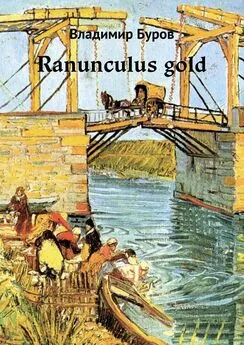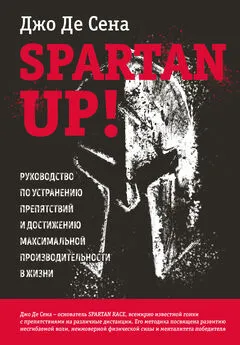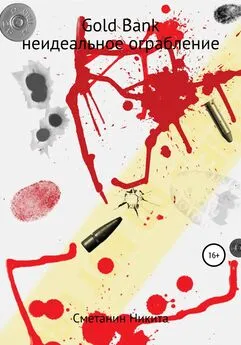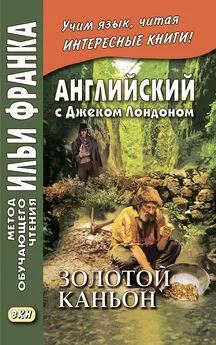Clive Cussler - Spartan Gold
- Название:Spartan Gold
- Автор:
- Жанр:
- Издательство:неизвестно
- Год:неизвестен
- ISBN:нет данных
- Рейтинг:
- Избранное:Добавить в избранное
-
Отзывы:
-
Ваша оценка:
Clive Cussler - Spartan Gold краткое содержание
The debut of a brand-new, action-packed series from the #1 New York Times bestselling master of 'pure entertainment'.
Thousands of years ago, the Persian king Xerxes the Great was said to have raided the Treasury at Delphi, carrying away two solid gold pillars as tribute. In 1800, Napoleon Bonaparte and his army stumble across the pillars in the Pennine Alps. Unable to transport them Napoleon creates a map on the labels of twelve bottles of rare wine. And when Napoleon dies, the bottles disappear.
Treasure hunters Sam and Remi Fargo are exploring the Great Pocomoke Swamp in Delaware when they are shocked to discover a World War II German u-boat. Inside, they find a bottle taken from Napoleon's 'lost cellar.' Fascinated, the Fargos set out to find the rest of the collection. But another connoisseur of sorts has been looking for the bottle they've just found. He is Hadeon Bondaruk - a half- Russian, half-Persian millionaire. He claims to be a descendant of King Xerxes himself.
And he wants his treasure back.
Spartan Gold - читать онлайн бесплатно полную версию (весь текст целиком)
Интервал:
Закладка:
With the fight over and no inclination to go back to being an ordinary shepherd, Bondaruk, aided by his Iranian colonel friend, moved to Sevastopol, which had, with the collapse of the Soviet empire, become the Wild West of the Black Sea Basin. Once there, his natural leadership ability and comfort with brutality and swift violence secured him a place first in the Ukrainian black market and then in the Ukrainian Krasnaya Mafiya, or Red Mafia. By the time he was thirty-five, Hadeon Bondaruk was in control of virtually every organized criminal enterprise in Ukraine and a millionaire many times over.
With his position and power and wealth secure, Bondaruk turned his attention to an idea that had been lingering in the back of his mind for many years: Had Xerxes the Great truly been born and raised in the Kopet Dag Mountains, in his very homeland? Had he and Xerxes, as boys separated by centuries, walked the same paths and marveled at the same mountain vistas? Could he himself be descended from Persian royalty?
The answer did not come easily, taking five years, millions of dollars, and a dedicated staff of historians, archaeologists, and genealogists, but by the time he turned forty Hadeon Bondaruk was sure of it: He was, in fact, a direct blood descendant of Xerxes I, ruler of the Persian Achaemenid Empire.
From there Bondaruk’s curiosity quickly grew into an obsession with everything Persian; he used the full force of his wealth and influence to assemble a collection of Persian artifacts, from the drinking cup used at the wedding celebration of Cyaxares to a stone dais used for Zoroastrian rituals during the Sassanid Dynasty to the jewel-encrusted gerron shield carried by Xerxes himself at Thermopylae.
And his collection was nearly complete. Save one glaring omission, he reminded himself. His personal museum, which lay in the bowels of his mansion, was a marvel he shared with no one, partially because no one was worthy of its glory, but mostly because it was not yet complete.
Yet, he now thought. Soon he would remedy the issue.
As if on cue the door to his study opened and his valet entered. “Pardon me, sir.”
Bondaruk turned. “What is it?”
“A call for you. Mr. Arkhipov.”
“Send it through.”
The valet left, gently closing the door behind him. A few moments later the phone on Bondaruk’s desk trilled. He picked it up. “Tell me you are calling me with good news, Grigoriy.”
“I am, sir. According to my sources, the man runs an antique shop in the area. The website where he posted the picture is a well-established forum for antique dealers and treasure hunters.”
“And has anyone shown any interest in the shard?”
“Some, but nothing serious. So far the consensus is that it’s simply a broken piece of bottle, nothing more.”
“Good. Where are you?”
“New York, waiting to board my flight.”
At this Bondaruk smiled. “Always taking the initiative. I like that.”
“It’s why you pay me,” the Russian answered.
“And if you manage to secure this piece there’ll be a bonus in it for you. How do you plan to approach the man, this antique dealer?”
The Russian paused for a moment and Bondaruk could almost see that familiar cruel smile curling Arkhipov’s lips.
“I find the direct approach is always best, don’t you?”
Arkhipov knew about directness and results, Bondaruk thought. The former Russian Spetsnaz was smart, ruthless, and relentless. In his twelve years in Bondaruk’s employ, Arkhipov had never failed in a mission, no matter how dirty.
“I do,” Bondaruk replied. “I’ll leave you to it, then. Just take care that you’re discreet.”
“I always am.”
Which was true. Many, many of Bondaruk’s enemies had, as far as the authorities could determine, simply vanished from the face of the earth.
“Call me as soon as you have word.”
“I will.”
Bondaruk was about to hang up when another question popped into his head. “Just out of curiosity, Grigoriy, where is this man’s shop? Anywhere close to where we’d predicted?”
“Very close. A small town called Princess Anne.”
CHAPTER 3
SNOW HILL, MARYLAND
Sam Fargo stood at the bottom of the stairs, leaning against the banister, legs crossed at the ankles and arms folded across his chest. Remi was running late as usual, having decided at the last minute her black Donna Karan dress was going to be a bit much for the restaurant and returned to their room to change clothes. Sam checked his watch again; he wasn’t so much worried about their reservation as he was about his empty belly, which had been grumbling loudly ever since they’d gotten back to the B&B.
The lobby of the hostel was quaint almost to a fault, done in Americana shabby chic and decorated with landscape watercolors done by local artists. A fire crackled in the fireplace and over hidden loudspeakers came the faint strains of Celtic folk music.
Sam heard the stairs creak once and looked up in time to see Remi coming down the stairs in a pair of cream Ralph Lauren trousers, a cashmere mock turtleneck, and a russet-colored shawl draped over her shoulders. Her auburn hair was up in a loose ponytail, a few strands touching her delicate neck.
“I’m sorry, have I made us late?” she asked, taking his offered arm as she reached the bottom of the stairs.
Sam stared at her for a few seconds without replying, then cleared his throat. “Looking at you, I fear time has come to a standstill.”
“Oh, shut up.”
The squeeze on Sam’s biceps belied her words and told him that, corny line or not, his compliment had been appreciated.
“Are we walking or driving?” she asked.
“We’ll walk. It’s a beautiful night.”
“Plus you run less risk of another ticket.”
On the way into town Sam had let their rented BMW have a bit too much head, much to the annoyance of the local sheriff, who’d been trying to eat his bologna sandwich lunch behind a roadside billboard.
“That, too,” Sam agreed.
There was a slight spring chill in the air, but not enough to be uncomfortable, and from the bushes along the sidewalk came the croaking of frogs. The restaurant, a locally owned Italian affair complete with a green-and-white-checkered awning, was only two blocks away, and it took only five minutes. Once they were seated they took a few minutes to peruse the wine list, settling on a Bordeaux from the French region of Barsac.
“So,” Remi said, “how sure are you about this?”
“You mean about the you-know-what?” Sam whispered conspir atorially.
“I think you can say the word, Sam. I doubt anyone cares.”
He smiled. “The submarine. I’m pretty sure. We’ll have to get down there, of course, but I can’t imagine it’s anything else.”
“But what’s it doing here? All the way upriver.”
“That’s the mystery we’ll have to solve, won’t we?”
“And what about Patty Cannon?”
“She can wait a couple days. We’ll ID the sub, put Selma and the others onto unraveling the mystery, then get back to our sociopathic murderous slave runner.”
Remi gave it a few moments’ thought, then shrugged. “Why not. Life is short.”
Selma Wondrash was the drill sergeant-like head of Sam and Remi’s three-person research team back in San Diego. Selma was widowed, having lost her husband, an air force test pilot, in a crash ten years earlier. They’d met in Budapest in the early nineties, she a university student, he a fighter jock on leave. Despite having lived in the United States for fifteen years, Selma had never entirely lost her accent.
After finishing her degree at Georgetown and becoming a citizen, she went to work for the Library of Congress’s Special Collections Directorate until Sam and Remi lured her away. More than a research chief, Selma had proved herself a superb travel agent and logistics guru, getting them to and from destinations with military efficiency.
While Sam and Remi loved the research aspect of their field, Selma and her team were rabid about it, living for that buried fact, that elusive lead, that unsolvable riddle that always seemed to crop up in the course of a job. More times than they could count, Selma and her team had kept an investigation from going far astray.
Of course, “job” wasn’t quite the right word for what Sam and Remi did. For them it wasn’t about a paycheck but rather the adventure, and the satisfaction of seeing the Fargo Foundation flourish. The foundation, which split its gifting between animal protection, nature conservancy, and underprivileged and abused children, had grown in leaps and bounds over the last decade, the previous year donating almost five million dollars to a variety of organizations. A hefty part of that money had come from Sam and Remi personally and the rest of it from private donations. For better or worse their exploits attracted a fair amount of media attention, which in turn attracted wealthy, high-profile donors.
The fact that Sam and Remi got to do what they loved was a boon neither of them took for granted, having both worked hard to reach this place in their life.
Remi’s father, now retired, had been a private contractor who’d built custom summer homes along the New England coast; her mother, a pediatrician with a series of bestselling child-rearing books. Following in her father’s footsteps, Remi had attended his alma mater, Boston College, emerging with a master’s in anthropology and history, with a focus on ancient trade routes.
Sam’s father, who’d died a few years earlier, had been one of the lead engineers on NASA’s Mercury, Gemini, and Apollo programs and rare-book collector, a love affair he’d passed on to Sam at an early age. Sam’s mother, Eunice, lived in Key West, where, despite being almost seventy, she ran a charter boat specializing in snorkel ing and deep-sea fishing.
Like Remi, Sam had followed in his father’s footsteps, if not in his choice of education, then in his vocation, earning a summa cum laude engineering degree from Caltech, along with a handful of trophies for lacrosse and soccer.
While in his final months of study at Caltech Sam was approached by a man he would later find out was from DARPA, the Defense Advanced Research Projects Agency, where the government developed and tested the latest and greatest toys for both the military and intelligence communities. The offered salary had been far below what he could have earned in the civilian world, but the lure of pure creative engineering combined with serving his country made Sam’s choice an easy one.
After seven years at DARPA Sam retired with the vague notion of bringing some of his own wild ideas to reality, and moved back to California. It was there, two weeks later, that Sam and Remi met at the Lighthouse, a jazz club on Hermosa Beach. Sam had wandered into the club for a cold beer and Remi was there celebrating a successful research trip looking into rumors of a sunken Spanish ship off Abalone Cove.
Though neither of them had ever called their first meeting a case of “love at first sight,” they’d both agreed it had certainly been a case of “pretty damned sure at first hour.” Six months later they were married where they’d first met, in a small ceremony at the Lighthouse.
At Remi’s encouragement Sam dove headfirst into his own business and they struck pay dirt within a year with an argon laser scanner that could detect and identify at a distance mixed metals and alloys, from gold and silver to platinum and palladium. Treasure hunters, universities, corporations, and mining outfits scrambled to license Sam’s invention and within two years the Fargo Group was seeing an annual net profit of three million dollars, and within four years the deep-pocketed corporations came calling. Sam and Remi took the highest bid, sold the company for enough money to see themselves comfortably through the rest of their lives, and never looked back.
Читать дальшеИнтервал:
Закладка:


![Джо Сена+ - Spartan up! Руководство по устранению препятствий и достижению максимальной производительности в жизни [litres]](/books/1059232/dzho-sena-spartan-up-rukovodstvo-po-ustraneniyu-pr.webp)







